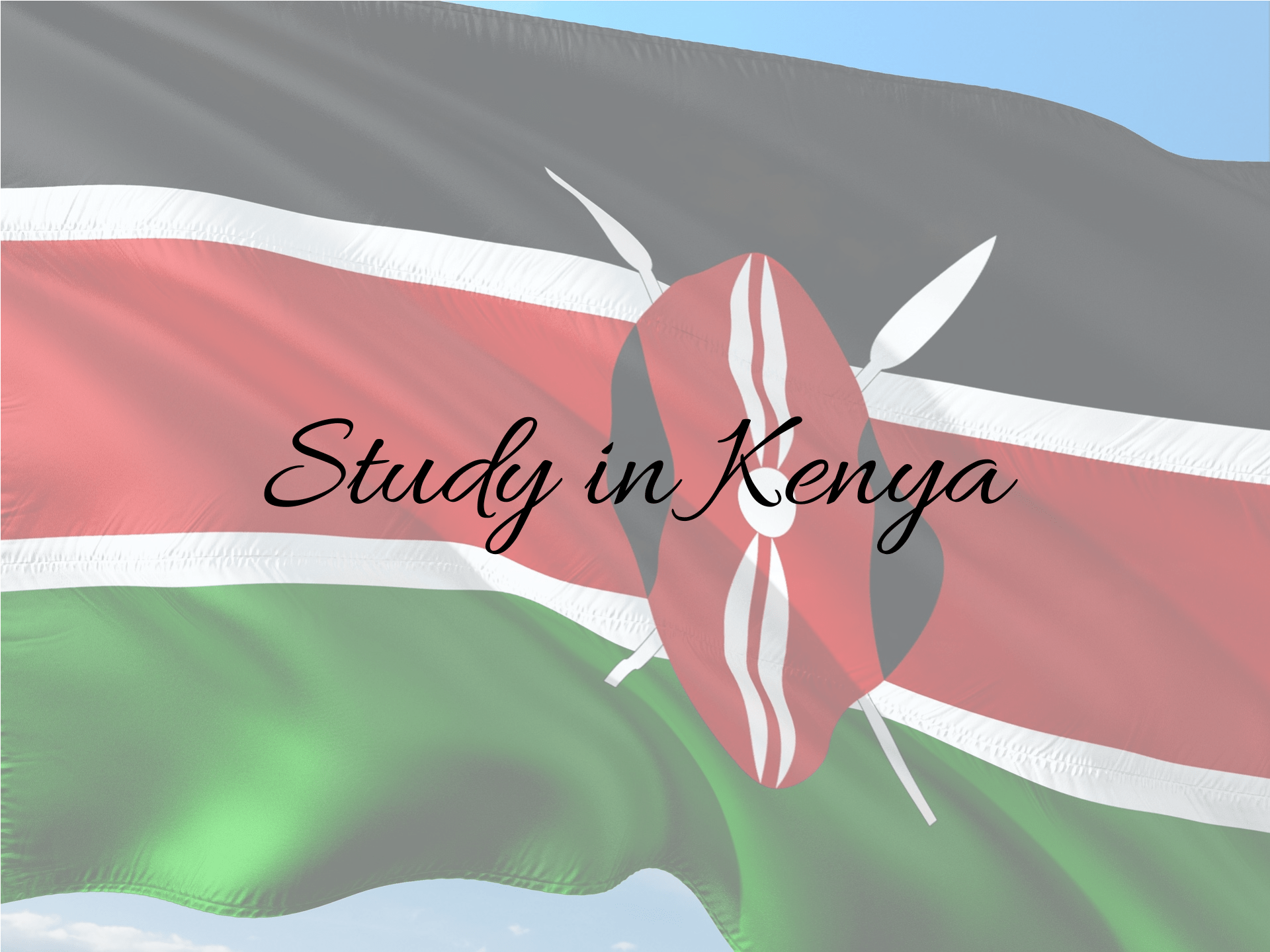
Why should you consider studying in Kenya?
Why Kenya?
There are several reasons why you might consider studying in Kenya:
- Quality Education: Kenya is home to some of the best universities in Africa, such as the University of Nairobi, Kenyatta University, and Strathmore University. These institutions offer high-quality education in various fields, including business, engineering, medicine, and humanities.
- Cultural Diversity: Kenya is a culturally diverse country with over 40 different ethnic groups. Studying in Kenya can expose you to a wide range of cultures and ways of life, which can help you broaden your perspective and gain a better understanding of the world.
- Natural Beauty: Kenya is known for its natural beauty, including its wildlife, beaches, and mountains. Studying in Kenya can allow you to explore these natural wonders and experience them firsthand.
- Internship and Job Opportunities: Kenya is a growing economy, and studying in Kenya can provide you with internship and job opportunities in various sectors such as agriculture, tourism, and technology.
- Affordable Cost of Living: Compared to many other study-abroad destinations, Kenya has a relatively low cost of living. This can make studying in Kenya more affordable for international students.
Overall, studying in Kenya can be a great opportunity to gain a quality education, experience a new culture, and explore a beautiful country.
What are the best courses to study in Kenya?
Kenya offers a wide range of courses across various fields, and the best courses to study depend on your interests, career goals, and academic background. However, here are some of the most popular and in-demand courses to study in Kenya:
- Medicine and Healthcare: With a growing population, Kenya has a high demand for qualified medical professionals. Medical courses such as Medicine and Surgery, Pharmacy, Nursing, and Public Health are some of the best courses to study in Kenya.
- Engineering: Kenya is in need of skilled engineers to support its infrastructure and development. Engineering courses such as Civil Engineering, Electrical Engineering, Mechanical Engineering, and Computer Science are in high demand.
- Business and Economics: Kenya has a growing economy and offers numerous opportunities in the business and finance sectors. Courses such as Accounting, Finance, Business Administration, and Economics are popular and highly valued.
- Information Technology: With the growth of the technology industry in Kenya, courses in Information Technology, Computer Science, and Software Engineering are in high demand.
- Law: Law courses such as Bachelor of Laws (LLB), Diplomas in Law, and Masters in Law are popular among students interested in pursuing careers in the legal profession.
Overall, these courses are some of the best courses to study in Kenya, but there are many other courses and disciplines available, including Social Sciences, Education, Agriculture, and Environmental Studies, among others.
Top Universities in Kenya
Here are some of the top and best universities in Kenya, based on their academic reputation, research output, and facilities:
- University of Nairobi: Established in 1956, the University of Nairobi is the oldest and largest university in Kenya. It offers a wide range of undergraduate and graduate programs in various fields, including Medicine, Engineering, Business, Law, and Social Sciences.
- Kenyatta University: Founded in 1985, Kenyatta University is one of the leading public universities in Kenya. It offers undergraduate and postgraduate programs in areas such as Education, Humanities, Science, Technology, and Business.
- Strathmore University: Strathmore University is a private university located in Nairobi. It is known for its excellent business and management programs and offers undergraduate and graduate courses in areas such as Business Administration, Finance, Accounting, and Information Technology.
- Moi University: Moi University is a public university located in Eldoret, Kenya. It offers a wide range of undergraduate and graduate programs in areas such as Medicine, Engineering, Law, Business, and Education.
- Egerton University: Egerton University is a public university located in Njoro, Kenya. It offers undergraduate and graduate programs in areas such as Agriculture, Education, Engineering, and Environmental Studies.
- Maseno University: Maseno University is a public university located in Maseno, Kenya. It offers undergraduate and graduate programs in areas such as Education, Social Sciences, Science, and Technology.
Overall, these universities are among the best in Kenya and offer a range of high-quality programs across various fields of study.
How to Study in Kenya?
If you are interested in studying in Kenya, here are the steps you can follow:
- Research and Choose a University: Research the different universities in Kenya and their programs to find the one that best fits your interests and career goals. Consider factors such as the quality of education, facilities, location, and cost.
- Meet the Admission Requirements: Check the admission requirements for your chosen university and program. These may include academic qualifications, language proficiency, and application fees.
- Apply to the University: Once you have met the admission requirements, you can apply to the university either online or by sending your application by post. Make sure to submit all required documents and pay the application fee on time.
- Obtain a Student Visa: If you are an international student, you will need a student visa to study in Kenya. Check with the Kenyan embassy or consulate in your country for the visa requirements and application process.
- Arrange for Accommodation: Find suitable accommodation either on-campus or off-campus. Most universities in Kenya provide accommodation for international students.
- Attend Orientation and Register for Classes: Attend the university’s orientation program for new students and register for your classes.
- Settle In: Once you arrive in Kenya, settle in and get familiar with the new environment. Join student clubs and organizations to meet new people and make friends.
Studying in Kenya can be a rewarding experience, and following these steps can help make the process smoother and more enjoyable.
Essential Requirements
The essential requirements to study in Kenya depend on the level of study (undergraduate or graduate) and the specific program you are interested in. However, here are some general requirements that apply to most programs in Kenya:
- Academic Qualifications: To be eligible for admission to a university in Kenya, you need to meet the minimum academic requirements, such as obtaining the necessary grades in your high school or previous university studies. Different programs and universities may have specific requirements, so make sure to check the admission requirements of your chosen program.
- Language Proficiency: Most universities in Kenya teach in English, so you may need to demonstrate proficiency in English by taking an English proficiency test, such as the International English Language Testing System (IELTS) or the Test of English as a Foreign Language (TOEFL).
- Application Fees: You will be required to pay an application fee when applying to a university in Kenya. The amount varies depending on the university and program.
- Student Visa: If you are an international student, you will need to obtain a student visa to study in Kenya. You will need to apply for the visa at the Kenyan embassy or consulate in your country of residence.
- Health Insurance: You may be required to have health insurance while studying in Kenya, either through the university or an external provider.
- Financial Support: You will need to show evidence of financial support to cover your tuition fees, accommodation, and living expenses while studying in Kenya. This can be in the form of a scholarship, grant, or personal funding.
Overall, the essential requirements to study in Kenya include meeting the academic qualifications, demonstrating language proficiency, paying the application fees, obtaining a student visa (for international students), having health insurance, and showing evidence of financial support.
The estimated cost of fulfilling your study abroad dream
The cost of studying in Kenya can vary depending on the university, program, and personal expenses. Here is an estimated breakdown of the costs you may incur:
- Tuition Fees: Tuition fees in Kenya depend on the university and program you choose. Generally, public universities have lower tuition fees compared to private universities. The cost of tuition can range from Ksh. 50,000 to Ksh. 500,000 per year for undergraduate programs and Ksh. 80,000 to Ksh. 700,000 per year for graduate programs.
- Accommodation: The cost of accommodation varies depending on the location and type of accommodation. On-campus accommodation is usually cheaper than off-campus accommodation. The cost of accommodation can range from Ksh. 20,000 to Ksh. 50,000 per semester.
- Food and Living Expenses: The cost of food and living expenses also depends on the location and lifestyle. On average, a student can expect to spend between Ksh. 15,000 to Ksh. 30,000 per month on food, transport, and other basic necessities.
- Health Insurance: Health insurance is mandatory for all international students in Kenya. The cost of health insurance can range from Ksh. 10,000 to Ksh. 30,000 per year.
- Books and Supplies: The cost of books and supplies depends on the program and the university. On average, a student can expect to spend between Ksh. 10,000 to Ksh. 30,000 per semester on books and supplies.
Overall, the total cost of studying in Kenya can range from Ksh. 200,000 to Ksh. 1,000,000 per year, depending on the university, program, and personal expenses. It is important to research and plan ahead to ensure that you have adequate financial resources to cover your expenses while studying in Kenya.
Academic Scholarships and Grants
There are various academic scholarships and grants available in Kenya to support students pursuing higher education. Some of these include:
- Equity Bank Wings to Fly Scholarship: This scholarship is available to academically gifted but financially challenged students in Kenya. It covers tuition fees, accommodation, and living expenses for four years of high school education.
- Mastercard Foundation Scholars Program: This program provides scholarships to academically talented but financially challenged students from Africa. It covers tuition fees, accommodation, living expenses, and other related expenses.
- Kenya Education Fund: This fund provides scholarships to disadvantaged students in Kenya who cannot afford to pay for their education. It covers tuition fees, accommodation, and living expenses.
- Commonwealth Scholarships: The Commonwealth Scholarship Commission offers scholarships to students from Kenya to study in other Commonwealth countries. The scholarship covers tuition fees, accommodation, living expenses, and travel costs.
- The Moi University Scholarship: Moi University offers merit-based scholarships to students with outstanding academic achievements. The scholarship covers tuition fees, accommodation, and living expenses.
These are just a few examples of the academic scholarships and grants available in Kenya. It is important to research and apply for scholarships early to increase your chances of success.
Step-by-step process to get your Student Visa
Here is a step-by-step process to get a student visa in Kenya:
- Apply to a Kenyan University: Before applying for a student visa, you must first apply to a Kenyan university and receive an admission/acceptance letter.
- Obtain a Student Pass Application Form: You can download the Student Pass Application Form from the Kenya Directorate of Immigration Services website or collect it from the Kenyan embassy or consulate in your country.
- Fill out the Student Pass Application Form: Fill out the form with accurate and truthful information. Make sure to provide all the required documents.
- Pay the Student Pass Application Fees: Pay the non-refundable application fee online or at the Kenyan embassy or consulate.
- Gather Required Documents: Gather all the required documents for the visa application, including your admission letter, a valid passport, two passport-sized photos, a copy of your medical insurance policy, and proof of financial support.
- Submit the Application: Submit your application and all required documents to the Kenyan embassy or consulate in your country. You can submit the application in person or by mail.
- Wait for the Application to be Processed: The processing time for a student visa can take up to six weeks. During this time, the immigration office will review your application and conduct a background check.
- Receive Your Visa: Once your application is approved, you will receive a student visa sticker on your passport.
- Travel to Kenya: Once you have your student visa, you can travel to Kenya to start your studies.
It is important to note that the student visa application process may vary depending on your country of origin and the Kenyan embassy or consulate you are dealing with. It is recommended to check with the relevant embassy or consulate for specific requirements and procedures.
What are after-study opportunities in Kenya?
Kenya offers various settling opportunities for individuals who wish to live and work in the country after completing their studies or for those who want to relocate. Here are some settling opportunities in Kenya:
- Employment: You can look for employment opportunities in Kenya, depending on your field of study. Some popular industries in Kenya include agriculture, tourism, banking, and technology. You can also consider working for international organizations with offices in Kenya, such as the United Nations or the World Bank. Companies such as Safaricom, Equity Bank, and Kenya Airways are some of the largest employers in Kenya.
- Internship or graduate trainee programs: Many companies in Kenya offer internship and graduate trainee programs to fresh graduates to help them gain work experience and develop their skills.
- Entrepreneurship: Kenya has a vibrant startup ecosystem, and you can consider starting your own business. Kenya has a supportive business environment, with government initiatives and venture capital funding available for startups.
- Teaching or research positions: You can consider working as a lecturer or researcher in one of the universities or research institutions in Kenya.
- Return Home: If you are an international student, you can return to your home country and use the skills and knowledge you gained in Kenya to contribute to your home community.
Work Permits
To work in Kenya, foreign nationals require a work permit. The work permit is issued by the Kenyan government, specifically the Department of Immigration Services. The work permit allows a foreign national to work in Kenya for a specified period, usually up to two years, and is renewable upon expiry.
To obtain a work permit in Kenya, you need to follow these steps:
- Secure a job offer from a Kenyan employer.
- The employer must apply for a work permit on your behalf with the Department of Immigration Services. The application must include relevant documents such as your passport, academic qualifications, and a letter of recommendation from the employer.
- After submitting the application, the Department of Immigration Services will review and process the application. The processing time may take up to three months.
- If the application is approved, you will receive a work permit.
It is essential to note that different categories of work permits are available, depending on the nature of the work and the duration of stay in Kenya. Additionally, the cost of a work permit varies depending on the type of work permit and the duration of stay.
It is recommended to seek the services of an immigration consultant or a legal professional to assist with the work permit application process.
Overall, there are many opportunities available after studying in Kenya. It is important to research and plan ahead to make the most of your opportunities.
Hope you found this article helpful, if you have any suggestions or queries regarding this then feel free to comment on the post, and we will get back to your query ASAP. Thank you and Best of Luck😊.



